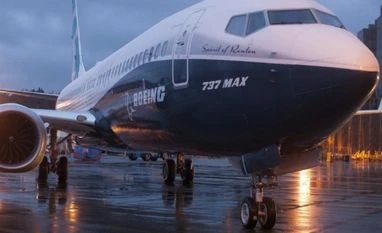President Donald Trump’s administration may be poised to strike a peculiar deal for the next Air Force One planes: buying jumbo jets abandoned by a defunct Russian airline.
The US Air Force is in talks to purchase two 747-8 jetliners from Boeing that were originally bound for Transaero Airlines, once Russia’s second-largest airline, said a person briefed on the talks. The carrier never signed for the humpbacked passenger jets before it dissolved in late 2015, and the aircraft have been in storage since rolling out of Boeing’s factory near Seattle earlier that year.
While the Pentagon has also explored fresh-out-of-the-factory models that wouldn’t be available until the end of the decade, it has an incentive to move quickly. Boeing is offering favourable pricing if a contract is awarded by this month, according to a government funding request. As president-elect, Trump railed against the cost of new Air Force One jets.
“We are still working with the Air Force on a deal for two 747s,” said Caroline Hutcheson, a spokeswoman for Boeing, who declined to say whether talks were centered on the Transaero planes. “We are focused on the best deal and price for the Air Force.”
The potential deal is in keeping with Trump’s knack for finding aircraft from unconventional sources. His gold-plated Boeing 757 that was a fixture on the campaign trail last year had previously been owned by billionaire Paul Allen. A Boeing 727 that served as an earlier personal jet was originally operated by American Airlines and was more than 40 years old when he sold it in 2009.
Boeing never built the other two of four jumbos ordered by Transaero, which liquidated as Western sanctions sapped Russia’s tourism industry. Aeroflot PJSC absorbed the remnants of the airline, but opted not to take the order for the four-engine jets.
The contracts with Transaero were finally canceled last month, freeing up the aircraft for purchase, said the person, who asked not to be identified because of the sensitivity of the discussions. The planes have been parked in a Victorville, California, storage yard.
“We’re working through the final stages of coordination to purchase two commercial 747-8 aircraft and expect to award a contract soon,” Air Force spokeswoman Ann Stefanek said in an email while not directly discussing specific aircraft.
Shortly after last year’s election, Trump tweeted that the “costs are out of control” for the new Air Force One planes and wrote, “Cancel order.” He later boasted of negotiating with Boeing to reduce the expense.
As part of a Pentagon request to shift, or reprogram, $2.4 billion in previously approved funds, the Air Force last month requested $195 million to speed up the purchase of two Boeing 747-8 commercial planes for the project. The model carries a list price of $386.8 million.
The Air Force said the acceleration will take advantage of Boeing’s favourable pricing, which is contingent upon a contract award by this month. “This effort will ensure delivery of two aircraft by December” instead of late fiscal 2019 and early 2020, said the formal request, which must be approved by all four congressional defense committees.
Flying Fortresses
The planes would still require extensive -- and pricey -- modifications to turn them into the flying fortresses that ferry U.S. presidents and their entourages around the world. The Air Force expects the aircraft to have the range to fly between continents and provide work and sleeping quarters for the president and first family. They also have to be equipped with highly advanced, secure communications and classified defense capabilities.
For Boeing, the deal could signal the end of the line for the iconic 747, which pioneered long-range travel in the 1970s. The Chicago-based planemaker has just one other passenger version -- bound for a VIP client -- in its backlog along with orders for 15 freighters.
“We are currently evaluating several scenarios, including sales campaigns, that may determine how long we continue the 747 program,” Boeing said in a federal filing last month. “Depending on market conditions, it is reasonably possible that we could decide to end production of the 747.”
The potential purchase of the Transaero 747s was reported earlier by DefenseOne.
Unlock 30+ premium stories daily hand-picked by our editors, across devices on browser and app.
Pick your 5 favourite companies, get a daily email with all news updates on them.
Full access to our intuitive epaper - clip, save, share articles from any device; newspaper archives from 2006.
Preferential invites to Business Standard events.
Curated newsletters on markets, personal finance, policy & politics, start-ups, technology, and more.
)